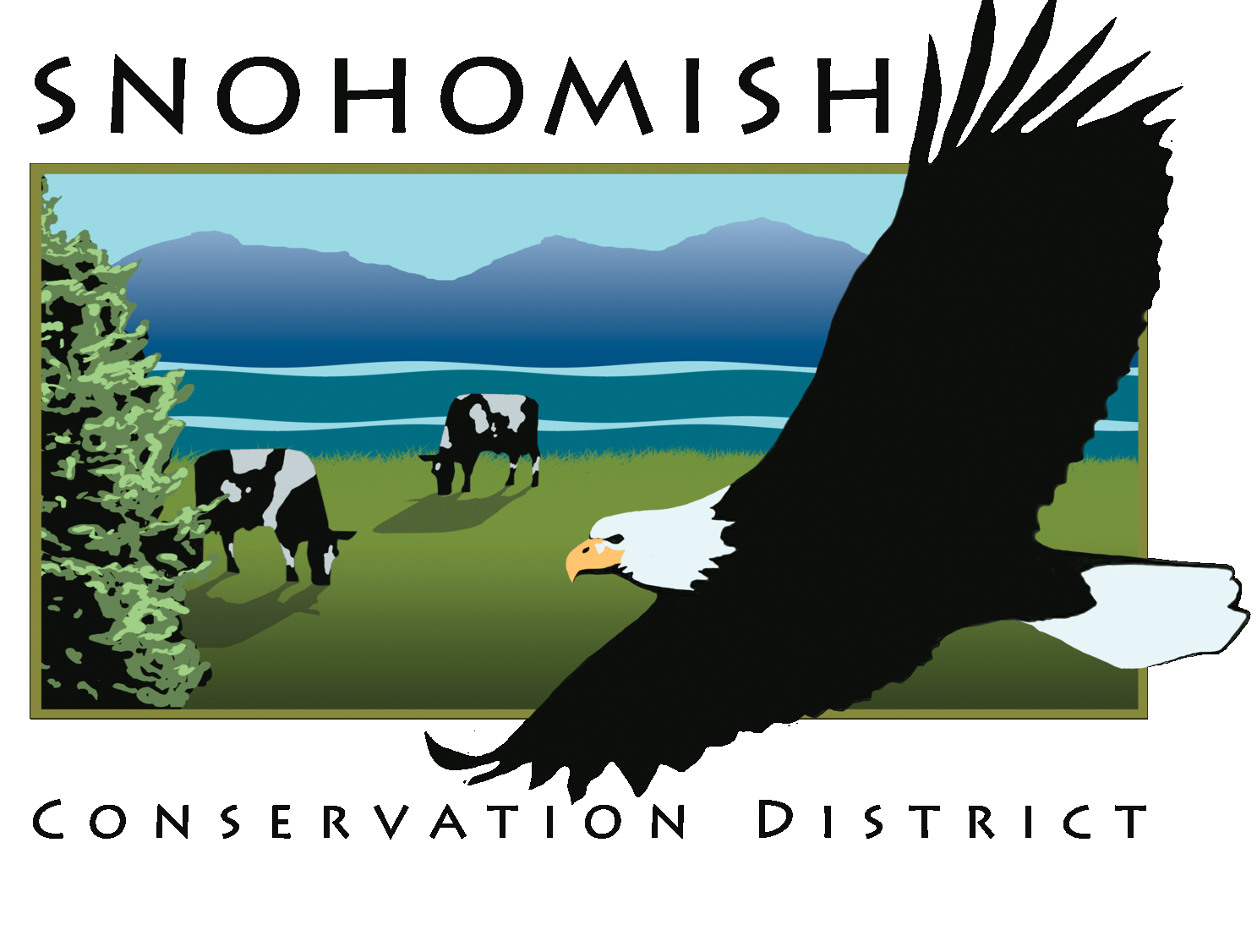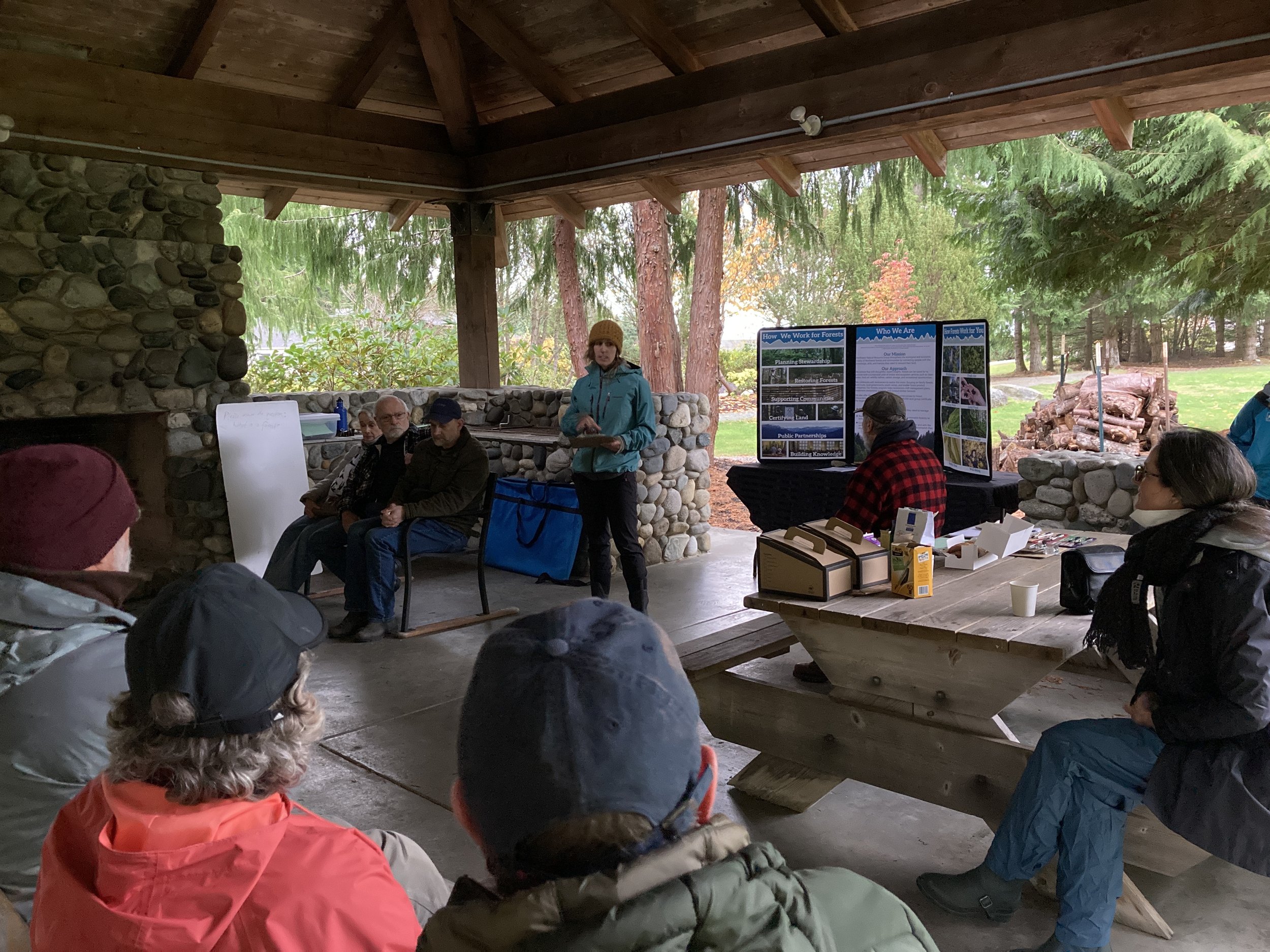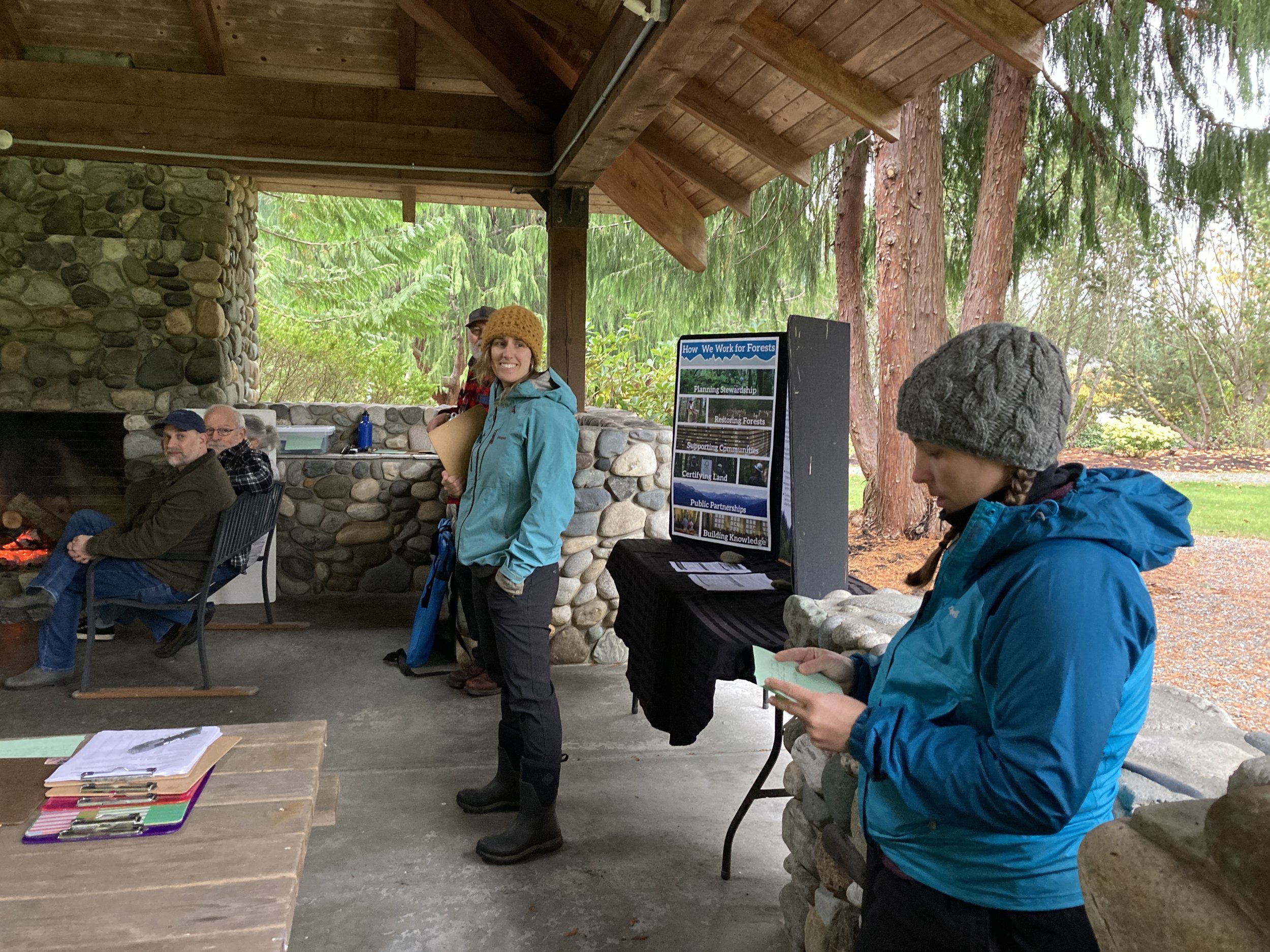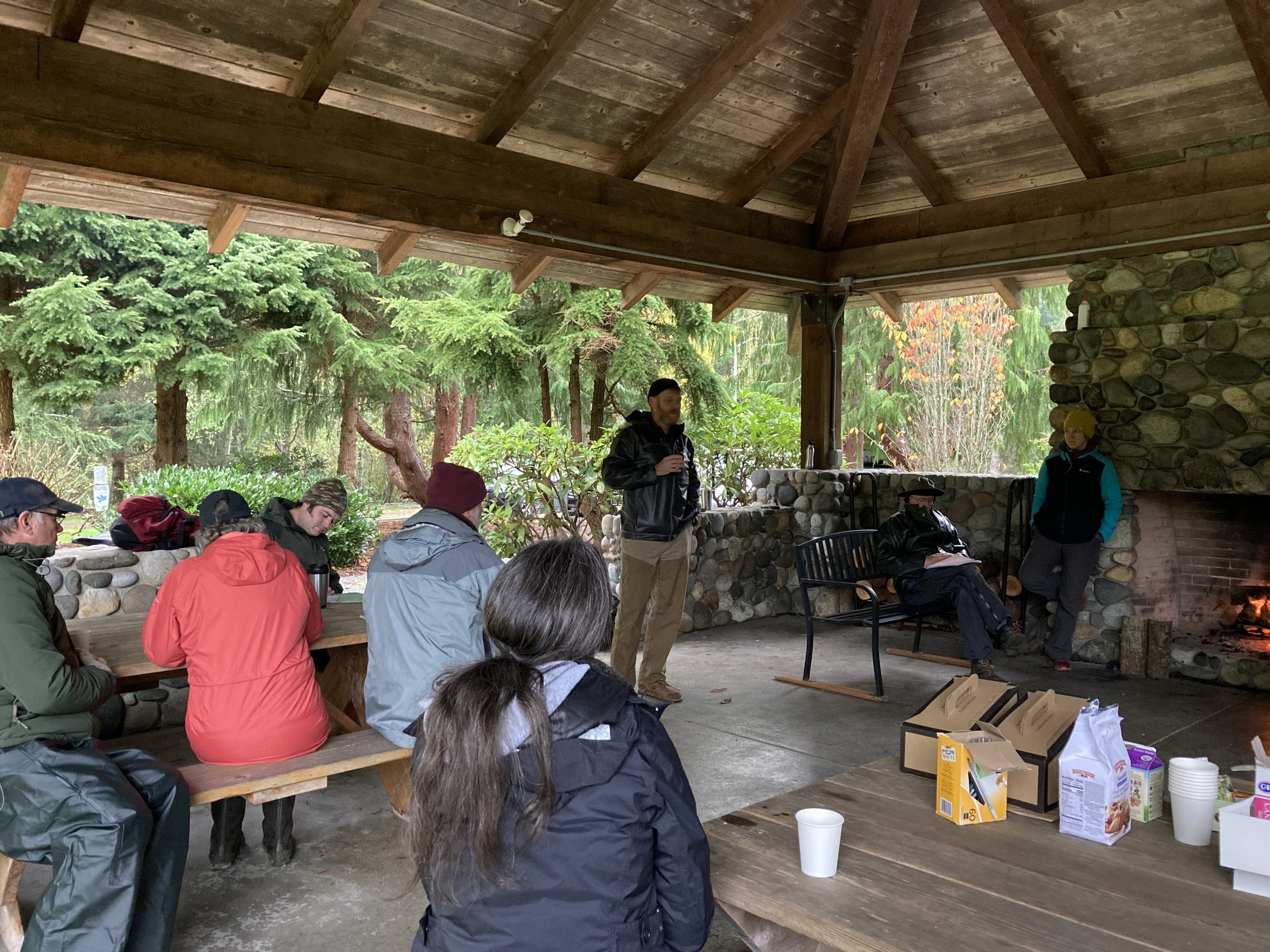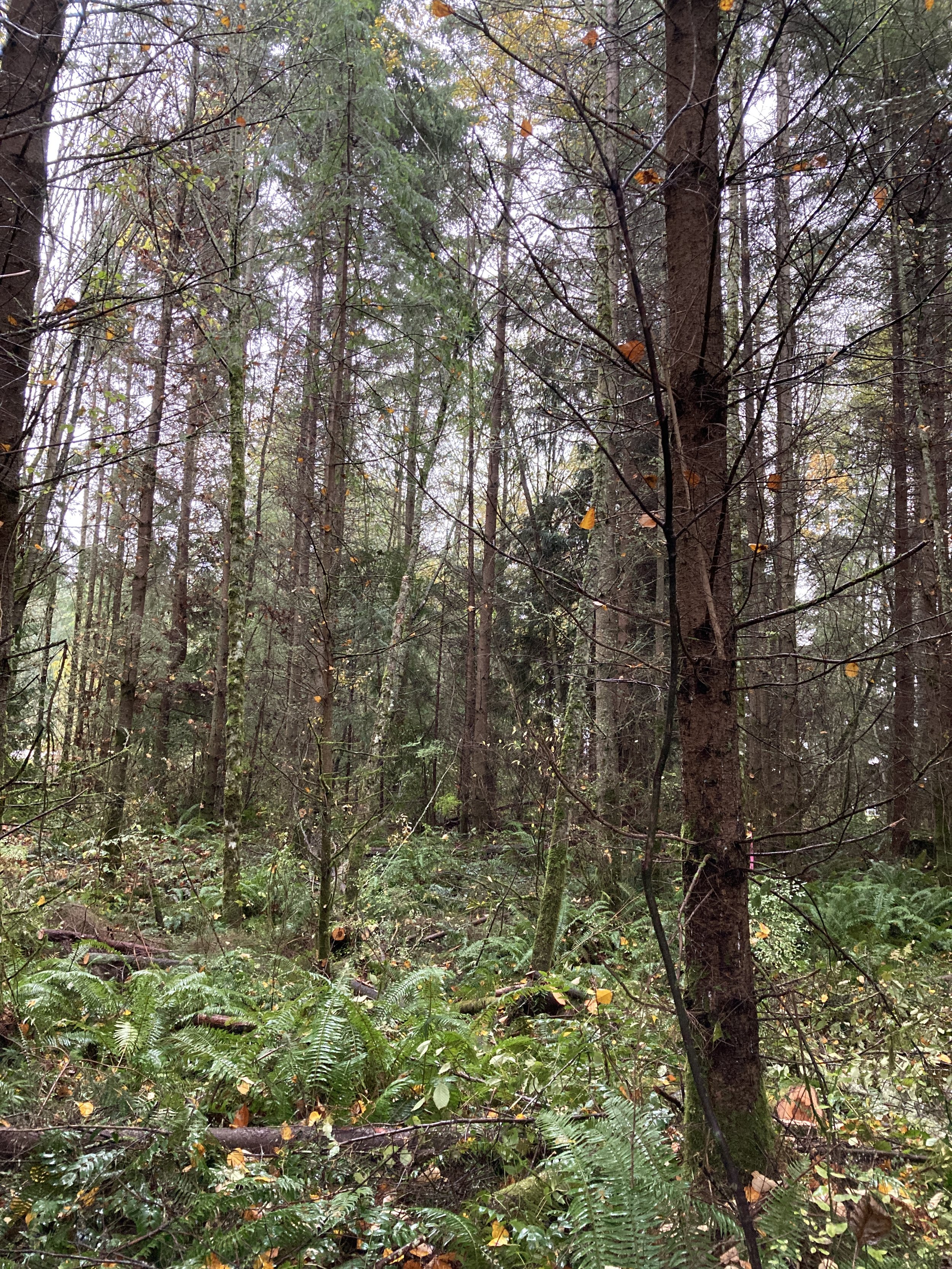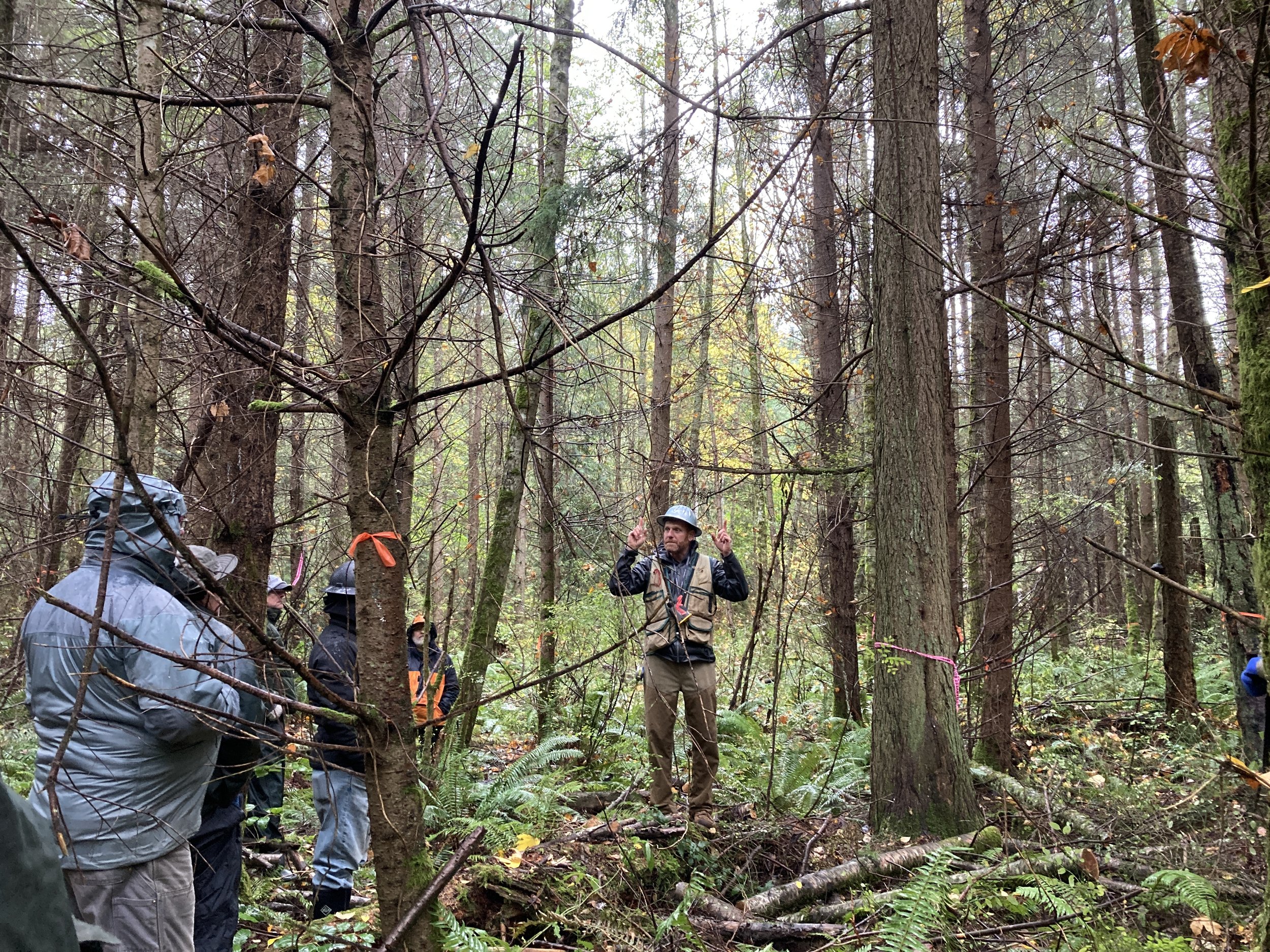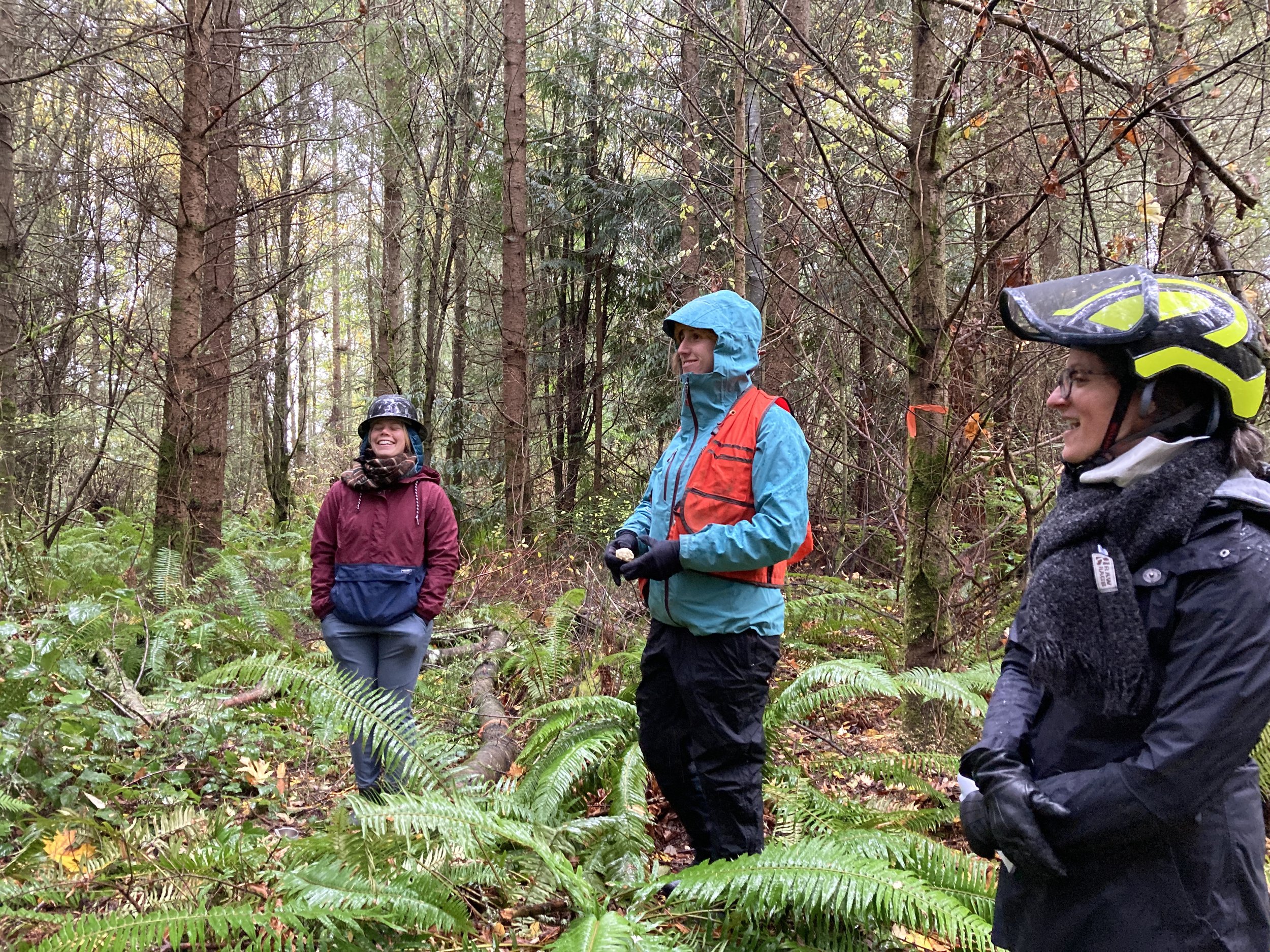Native Plants for a Healthy Forest
/How do you manage your forest for both economic and ecological benefits? Snohomish Conservation District partnered with the Northwest Natural Resource Group to provide a comprehensive and hands-on day of learning about ecological forestry, a holistic system of forest management that encompasses the health of not just the trees, but the health and biodiversity of all aspects of the forest.
Ecological forestry works to improve the health of everything from soil organisms to mammals, while providing ecological benefits to the larger area and economic benefits for the landowner.
Last fall, small forest landowners gathered on Camano Island to learn about forest ecology in our region and how to apply ecological forestry principles to their own lands, including how to manage their forests for resilience as the climate changes. Participants learned how to select trees for thinning based on the goals for their own forests, such as creating old-growth forest structure or managing for timber. They also learned how to build wildlife shelters with downed logs and branches, select trees to keep on site because of their unique wildlife benefits, support and enhance the variety of culturally important plants within their forests, and how to access financial and technical assistance programs that can help improve the health and productivity of their forests.
Our forester, Stacey Dixon, is providing personalized assistance to the workshop participants and is available to assist other forest landowners in Snohomish County and on Camano and Whidbey Islands.
Are you interested in learning how to apply ecological forestry to your forest? We will have a similar workshop in the Darrington area in 2022! If you own forested property in or near Darrington and are interested in hosting this workshop for your community, please reach out to Stacey at 360-453-7163 or at sdixon@snohomishcd.org.
Thanks to Kirk, Alex, and the rest of the Northwest Natural Resource Group for providing this experience!
Thanks also to the Washington Department of Fish and Wildlife and the U.S. Environmental Protection Agency for funding our regional forester program.
This project has been funded wholly or in part by the United States Environmental Protection Agency under assistance agreement PC-01J22301 through the Washington Department of Fish and Wildlife. The contents of this document do not necessarily reflect the views and policies of the Environmental Protection Agency or the Washington Department of Fish and Wildlife, nor does mention of trade names or commercial products constitute endorsement or recommendation for use.
